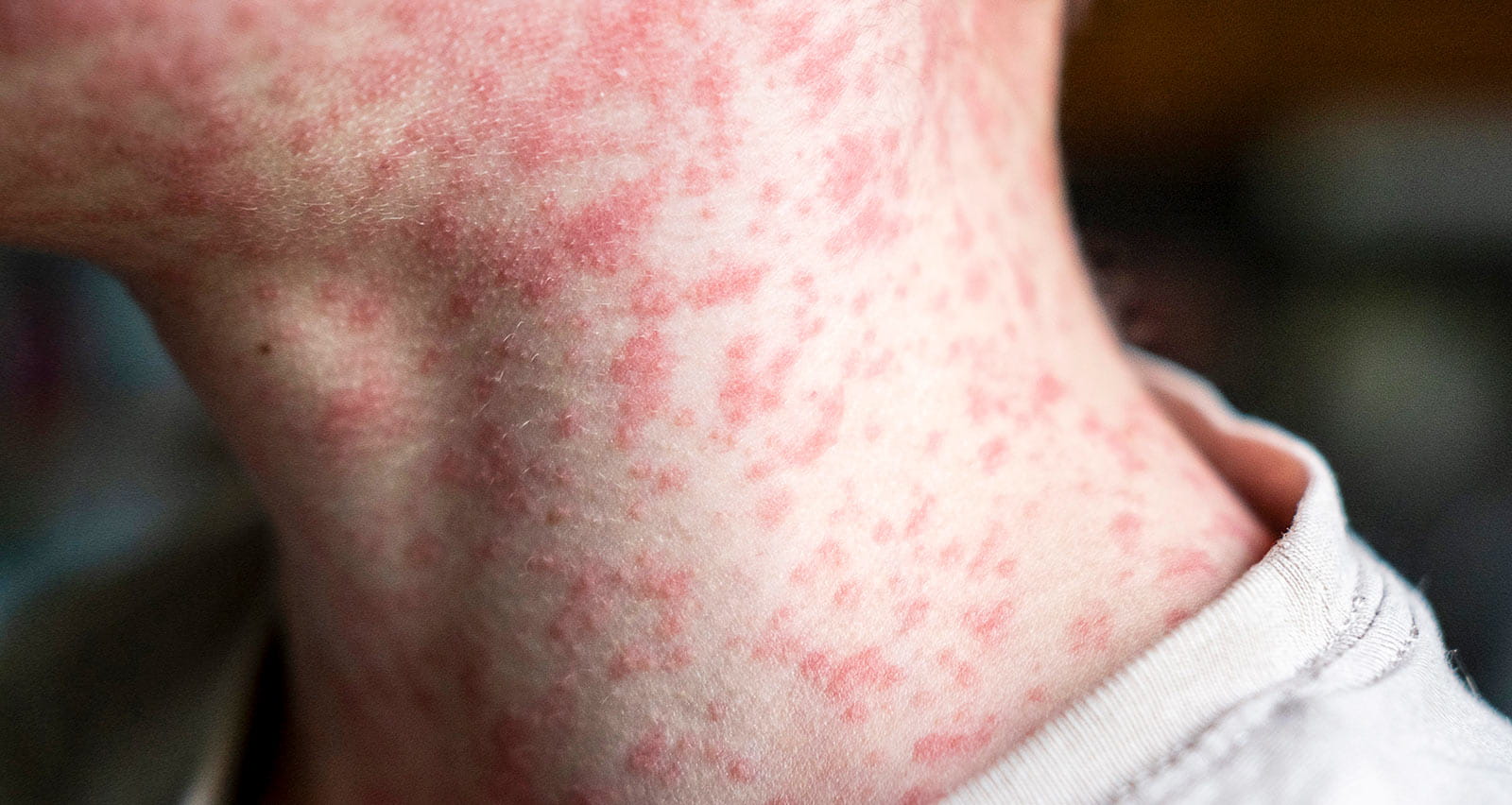
Measles
Measles is a highly contagious disease that is caused by a virus. This disease causes a distinct rash along with other symptoms and spreads through direct contact with droplets from an infected person’s cough or sneeze. Most people who get measles will recover fully. However, measles can also cause severe complications or death in some people. Getting the measles vaccine is the best way to prevent developing and spreading measles.
Make an Appointment
Make an appointment with a UH Rainbow pediatric primary care provider.
Schedule OnlineWhat Should I Know About Measles?
Measles is one of the most contagious viruses and has a high rate of transmission. Every infected person can spread measles to 9-10 other people if those people have no immunity. Also called rubeola, measles was once a common childhood illness before the vaccine became widely available.
Measles Symptoms
Symptoms usually start showing up 7 to 14 days after coming into contact with an infected person. Some of the first measles symptoms to appear include:
- Cough
- Fever of 104 degrees Fahrenheit or higher
- Inflamed, watery or red eyes (pink eye or conjunctivitis)
- Runny nose
- Small white spots inside the mouth, called Koplik spots
- Sore throat
Within a few days after the first symptoms appear, a red rash develops. It often starts on the face or neck and then spreads downward to the chest, arms and legs. The rash is made up of large flat spots and small raised bumps. After the rash appears, the infected person’s fever may increase. The rash fades after 4 to 7 days.
Most people recover from measles in about 10 days and it generally doesn’t cause long-term effects. However, serious complications can occur, especially in vulnerable groups such as children younger than 5, pregnant people, people with compromised immune systems and people who are malnourished or are deficient in essential vitamins such as Vitamin A.
Potential Complications
Complications of measles can include:
- Bronchitis, laryngitis or croup, which cause inflammation or infection of the airways.
- Dehydration as the result of vomiting and/or diarrhea.
- Encephalitis, or swelling/infection of the brain.
- Middle ear infection that may lead to hearing loss.
- Pneumonia.
- Pregnancy complications such as miscarriage or birth defects.
How is Measles Treated?
Measles can cause severe illness, and about 40 percent of measles patients require hospitalization. Though most people recover fully, they may be more likely to develop future infections. This is because measles often destroys the cells that remember past infections and provides immunity, a phenomenon known as “immune amnesia.” People infected with measles are also at risk of developing serious complications even months or years after recovering.
There are no antiviral medications that are effective for measles, so treatment generally focuses on managing symptoms and preventing complications.
To manage measles at home, patients can:
- Take over-the-counter pain medication such as Tylenol or non-steroidal anti-inflammatory drugs (NSAIDs) for aches, pains and fever. Do not give aspirin to children or teens because of the risk of a rare but serious condition called Reye’s syndrome.
- Get plenty of rest.
- Stay hydrated by drinking plenty of fluids.
- Gargle with saltwater.
Other treatments include:
- Vitamin A: Healthcare providers may sometimes prescribe vitamin A to help prevent serious complications from measles. This should only be attempted under a doctor’s supervision because of the risk of vitamin A toxicity. Vitamin A does not prevent measles.
- Antibiotics: If a measles patient develops an infection such as pneumonia or an ear infection, their doctor may prescribe antibiotics to treat the infection. Antibiotics will not treat the measles itself because it’s caused by a virus, not bacteria.
- Oxygen: If measles causes inflammation of the airways, patients may need supplemental oxygen.
Measles Prevention
The best way to prevent measles and its life-threatening complications is to get vaccinated. Vaccinations also help prevent the spread of measles. Because of vaccination, measles hasn't been common in the U.S. for over two decades. However, outbreaks still occur, especially in areas with low vaccination rates. Measles can spread very quickly in these areas due to its contagious nature.
The measles vaccine is routinely recommended as part of a child’s regular vaccination schedule. It is included in the MMR vaccine, which protects against three serious viral infections: measles, mumps and rubella.
Vaccine Recommendations
Two doses of the MMR vaccine provide 97 percent protection against measles. They provide lifetime protection for children who receive them. Doctors recommend the following schedule for the MMR vaccine:
- First dose: 12 – 15 months
- Second dose: 4 – 6 years
For children who have not been vaccinated, receiving a dose of the vaccine up to 3 days after being exposed to measles may help prevent the disease.
Adults can also receive the measles vaccine if they have never been vaccinated or are unsure of their vaccination status. Talk to your healthcare provider about whether you should consider receiving a measles vaccine.
Your child’s health is important. Get expert care.
Offering in-person and virtual visits.
216-UH4-KIDS


